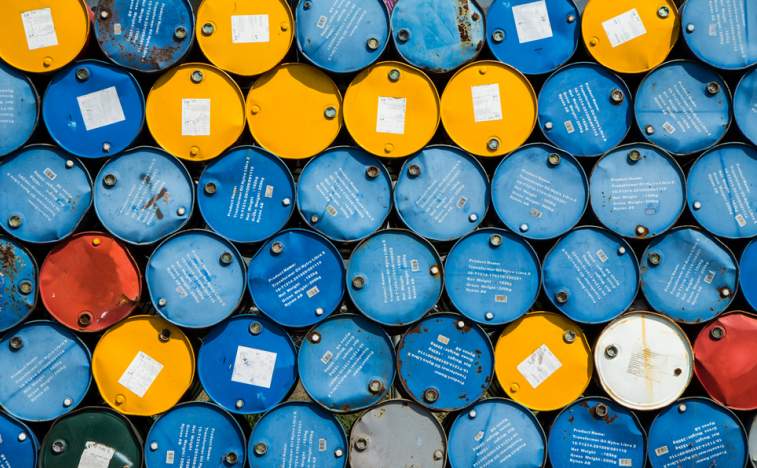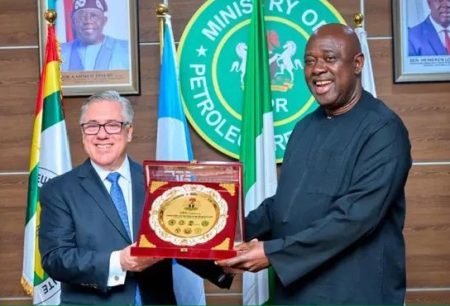18 December 2011, Vanguard Nespaper, LAGOS – Since 1985 when the former military dictator, Ibrahim Babangida, adopted the International Monetary Fund (IMF) economic model in Nigeria, the issue of “fuel subsidies” has become recurrent in Nigeria’s annual economic grammar. In 1989 and 1990, Nigerian students led a nation-wide protest against the anti-SAP policies of the military government, one of whose cardinal thrusts was the partial removal of oil subsidies.
The excuse then was and has always been the same: we need to remove the subsidies to invest the money on infrastructural development. Once every other year, the government talks about removing oil subsidies. Nigerians protest. But the government unrelentingly makes a case for the removal of subsidies, and then of course promises that it was the very last time subsidies will be removed from Nigerian oil.
The last time, under Umar Yar Adua, the Federal government told Nigerians that it was absolutely the very last removal of oil subsidies – the once and for all. It was the mother of all oil subsidies removals. The pump price of petrol was then put at N65 per litre. Nigerians took the punch squarely on the gob but moved on. Of course in places like Owerri, it was not always what was written on the bus that was in the bus.
Oil price at the gas stations went often as high as N85 per litre – for a city just shy of fifteen minutes on a straight road to a crude oil production facility. It is afterall, supply-side economics.
The so-called deregulation of the sale of oil has frequently taken the form of subterfuge. Frequently, in making its case, the Federal government produces and circulates arcane statistics about loss of revenue and all the outcomes of what we may now rightly call its oil revenue loss impact assessment. There is much dishonesty in the details of these arcane stats. And there, indeed, is the major problem.
From what we now know, a mafia of oil marketers and importers are the greatest beneficiaries of the so-called subsidies, basically tax exempts granted by the federal government to these marketers for importing and marketing refined products. Recently, the National Assembly caused the names of these Refined Oil importers to be published, and yes, Nigerians know the fat cats; what Nigerians also need to know is why these Oligopolists, most of them the biggest fronts for many people who have held public positions, and who have stashed away nests eggs in these baskets, continue to thrive.
The simplest and possibly most obvious truth lies in the contradictions of energy production and management in Nigeria. Oil in Nigeria is the devils broth. Nigerian public leadership over the years has become extremely mired in the corruption of this economic monoculture fuelled by a thrush of petrodollar.
Awash with oil revenue, Nigeria often acts like that child sent into the barnyard full of riches and all he is able to bring out is an anorexic ram! We take a look around us, at Nigeria’s peers in the business of oil – Brazil, Venezuela, Saudi Arabia, Malaysia, Libya (before its destruction by NATO) – and what we see of Nigeria is evil beyond words: environmental damage, infrastructural decay, high income disparity, extreme corruption – the entire symptoms of the syndrome called “the oil curse.”
True, the government of Nigeria must at some point stop subsidizing the operations of oil importers and marketers, a powerful monopoly whose lobbyists, both in the increasingly corrupt, conservative and distracted national press/media, and within what we now call civil society, has continually muddled the true picture or the central question about petroleum subsidy: it is about production and distribution.
Who produces and who distributes Nigerian oil and gas? What is the cost efficiency of petrol products importation in the light of Nigeria’s domestic consumption? How have the revenue saved from other subsidy withdrawalsbeen utilised visibly to the advantage and the long and short term interest of Nigerians? Subsidy removal is taxation by direct means as Nigerians pay more at the gas pump, but have never seen the direct benefits of these taxes from the governments both at the center and at the periphery.
It is imperative to come to terms with these unanswered questions, and in fact to note quite clearly, as my friend, Demola Adedoyin, onetime Energy Reporter for both the TSM and the Vanguard once told me in his pithy way, “oil subsidy is a powerful, all-round con-game.”
Let’s leave the arcane statistics of subsidy removal for the moment and ask the Federal Government and Energy economists, to provide the cost impact analysis of higher domestic production of refined oil. These are interlinked: Nigeria has an obligation, wherever necessary to subsidize the economic life of its citizens for greater ease of living. That in fact is the real meaning of government. But we also agree that it must do this not by unfairly enriching a few oligopolists.
Greater domestic production and distribution of refined oil will drive down the cost of petroleumproducts; possibly eliminate the round robincircularity of refined products importation, which adds both to the operational costs and to the kobo to kobo cost of product value. Nigerian domestic refining capability is at a very shocking level.
For a nation that produces crude, Nigeria has shown a remarkable degree of foolhardiness in terms of its level of investment in local refining technology. Biafran technologists refined oil in the fields of high schools and on the run.
It is a great mystery that in a more settled ambience, Nigeria is unable to maintain and run Refineries that would bring down the price of oil, reduce import dependence, and in fact subsidize Nigerian energy consumers directly. President Jonathan, remarkably, has in the past week taken two diametric positions, all however, still insisting on subsidy removal: in the first instance, he declared to a group of Civil Society leaders that he would risk mass revolt in Nigeria to remove the subsidy.
Just by the weekend, however, he was taking a more conciliatory tack that he would not want to “hurt” Nigerians, insisting nonetheless, on the necessity of subsidy removal. “We cannot continue to borrow to run government” the president declared.
This adds once more to the mystery of this oil subsidy game. How much is Nigeria borrowing, from whom, and for what? Last time the current Finance minister was in government, Nigeria was said to have liquidated her indebtedness over the years.
Nigeria’s liquidity ought not be in any question given the direct revenue from crude sales alone. Internally generated tax other than the sale of oil also ought to account for a great financial receipt for the Federal Government. The question Nigerians, either directly by common action, or through their representatives in the National and States Assemblies ought to ask this administration is: where is Nigeria’s money?
There is very visible evidence that government is not building or maintaining public education infrastructure; public health institutions are in utter decay, the roads are not maintained and are in decay, government is generally absent in the public life of Nigerians, and so, Mister President, what is the Nigerian government borrowing money to do?
This government, and others before it, has been playing chicken with the petroleum subsidy issue. But it is time to come clean – and the first place to start is publishing the audits on the operations of the NNPC. Sunlight is the greatest antiseptic.




